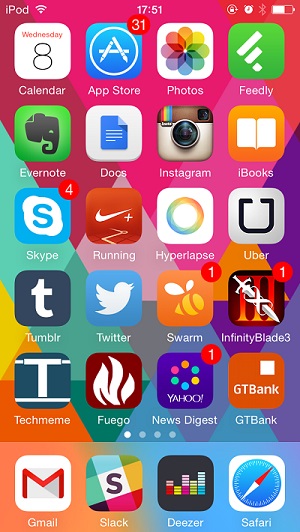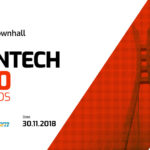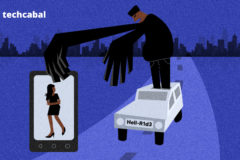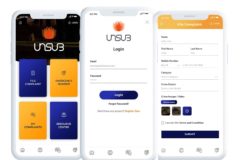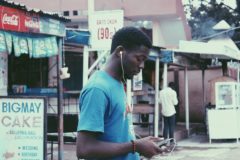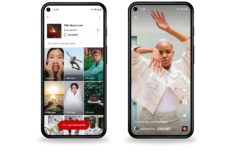Of course, the assumption here is that we all use our toothbrushes at least once a day.
Anyhow, I want to talk about three apps.
I’ve been giving Deezer $5 every month for almost 2 years in exchange for unlimited music.
A few weeks ago, I narrowly escaped upgrading to Evernote premium because I desperately needed a note revision. It costs $5 a month. I’ll probably blink eventually.
My team uses an amazing remote collaboration tool called Slack. Slack is substantively free, but once you get to the point where you want to search your message history (and you will), you’ll have to pony up $7/mo per user. In our case, it can’t be helped, we’re hooked. Luckily, we got about $250 in reward credits for joining while Slack was still in beta, but we are quite resigned to paying once we eat though that. I can’t imagine life without Slack.
These three apps have something in common. I use them single everyday. They are indispensable to my daily lifestyle. Each of them are insanely sticky, to the point that I don’t mind paying to use them.
This is my iPod’s first homescreen, and on it you’ll see the apps that are essential to my life and business. Apps that I use as often I have a toothbrush, more or less. Most of these habit-forming apps live on the homescreen of my iPod. The closer an app is to to my first homescreen, the higher the probability that I will pay for it. As you can see, two out of the four that are pinned just above my home button are paid apps.
Up till now, there is only one local app on my homescreen. That is the GTBank app, in the lower right corner. This is because not all the Nigerian apps and services that I use can be installed on my iPod. Still, I’m troubled at how short the following list is.
- Tranzit, for getting around. I don’t have an Android device, so I’m still stuck with the web app. Thankfully, it works.
- TopUpGenie – I can’t remember the last time I scratched a recharge card.
- GTBank – Much as I hate to admit, I use this app every single day.
We were chatting about it on Twitter, and these other two cropped up.
- Quickteller – Because Interswitch has used this platform to accumulate almost every possible type of electronic bill payment in Nigeria.
- DSTv – Apparently, it works.
Truppr and iROKOtv should probably be on this list too, but I don’t use them, and haven’t met too many people that do (Truppr is relatively new and promising, iROKOtv is more popular outside Nigeria).
If you are a Nigerian developer, and your consumer app is not here (this post is about consumer apps, not enterprise solutions), this is food for thought. I consider myself an early adopter, but of course I might be missing some really valuable apps just because I don’t need them, or I just haven’t become aware of their existence yet. Still, my feeling is the actual number of useful local apps and services is far lower than the hype of the mobile revolution leads us to believe.
Forget about making money. If your app is not “sticky”, habit-forming, and makes people return every day, it will likely never take off. The best apps are the ones that people use as often as their toothbrush.
Photo Credit: Takeshi Kawai via Compfight cc










